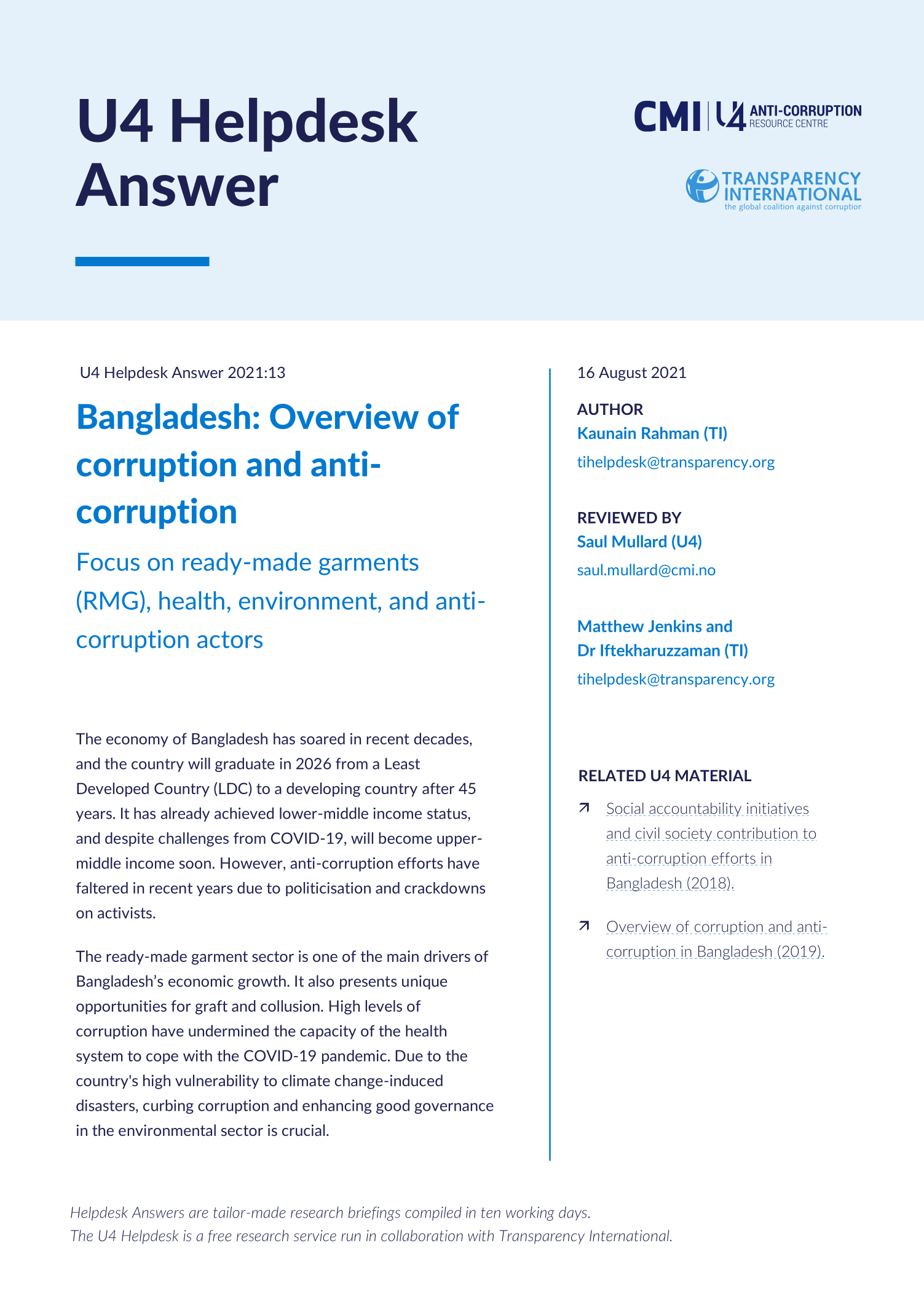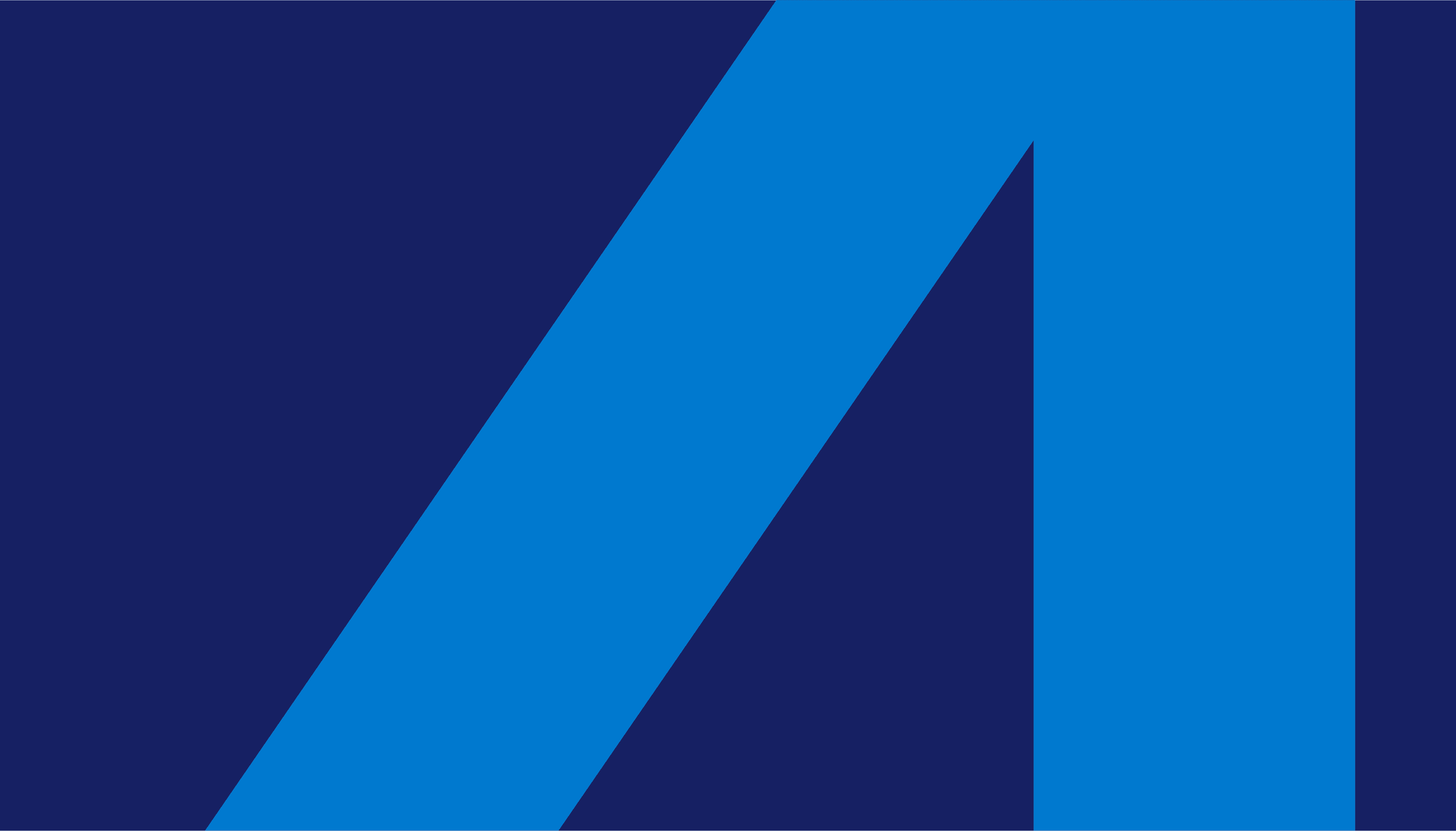Main points
- Corruption in Bangladesh remains endemic. The administration espouses a zero-tolerance policy towards corruption, but high-profile political actors are reportedly embroiled in various corruption and embezzlement scandals.
- The ready-made garment (RMG) is a vital sector of the economy with a serious set of corruption risks, including but not limited to contracting and procurement fraud, collusion, and bribery.
- The Bangladeshi health sector is rife with corruption and poor governance, and the COVID-19 pandemic has added additional stress.
- While environmental measures including climate change adaptation are crucial to mitigate disaster vulnerabilities, such initiatives are frequently marred by irregularities and embezzlement.
- Anti-corruption efforts are plagued by politicisation, and there is a crackdown on actors speaking against corruption.


